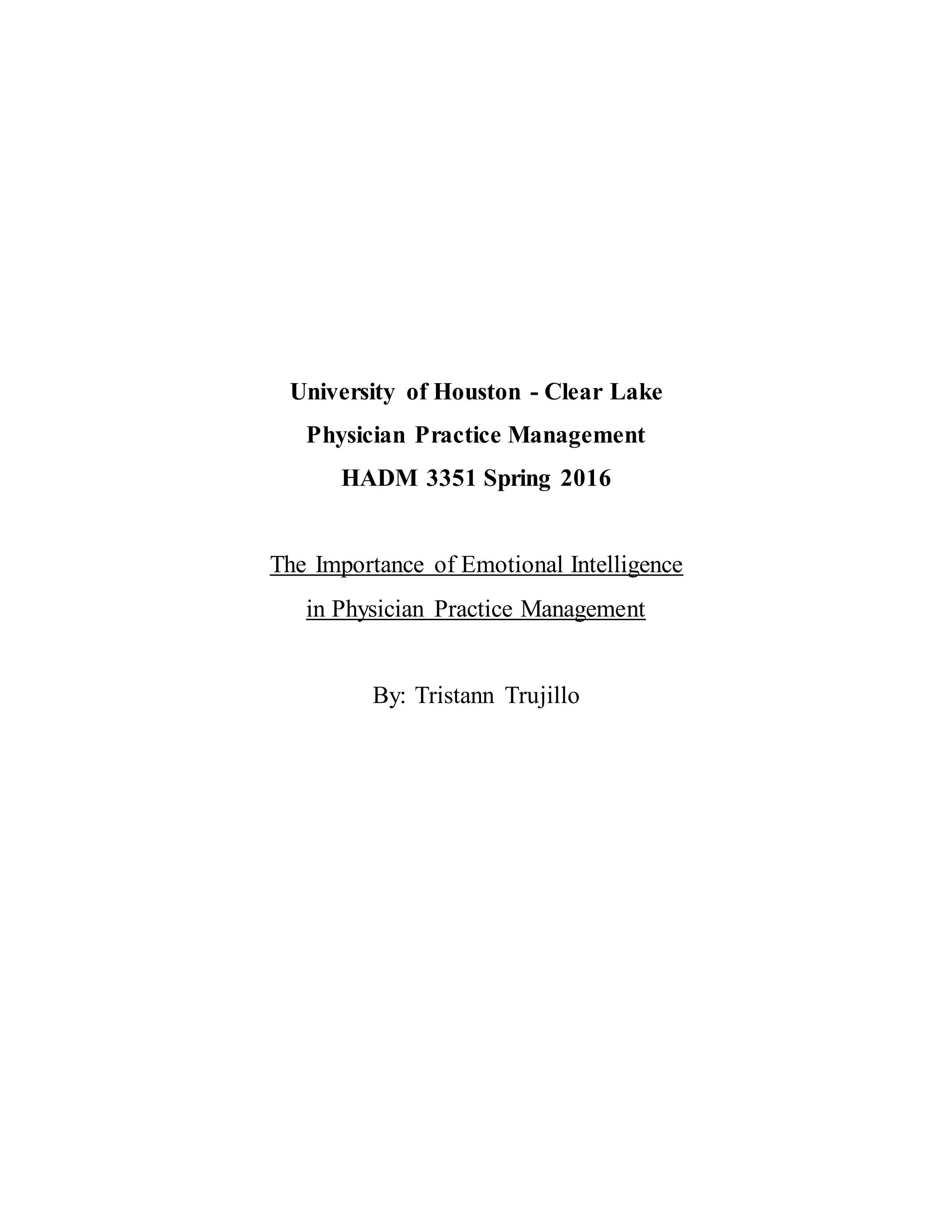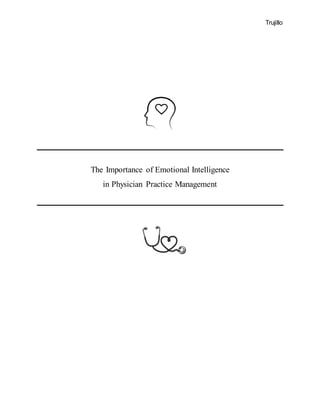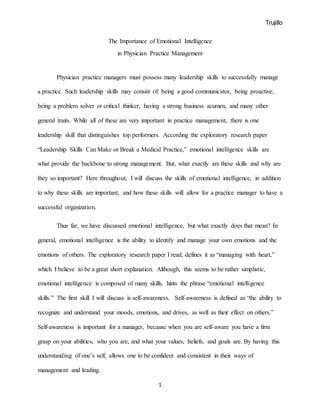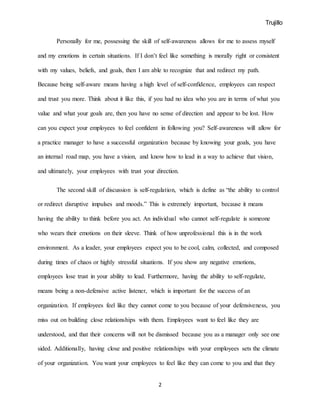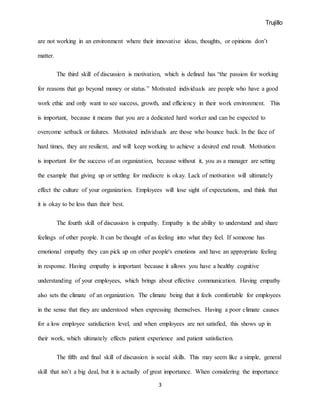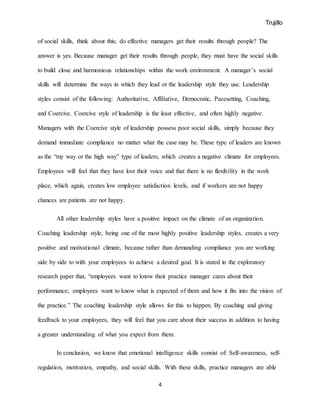Physician practice managers need strong leadership skills to successfully manage a practice. While skills like communication, problem solving, and business acumen are important, emotional intelligence skills are particularly crucial. Emotional intelligence includes self-awareness, self-regulation, motivation, empathy, and social skills. These skills allow managers to understand themselves and others, control disruptive impulses, motivate employees, empathize with staff, and build relationships. Managers with emotional intelligence are able to create a positive work environment and culture with satisfied employees, leading to good patient experiences and satisfaction.
